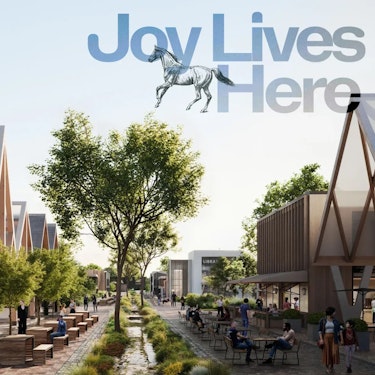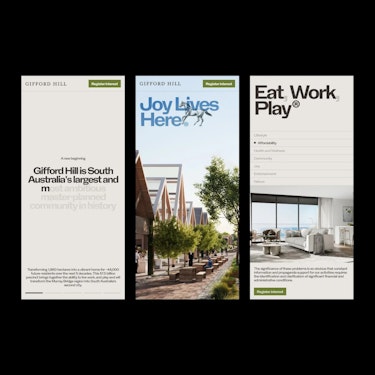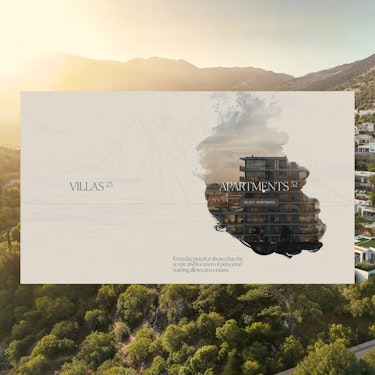In a competitive real estate landscape, branding is no longer a secondary consideration — it is a fundamental driver of success. A strong brand identity does more than simply differentiate a property or development; it creates an emotional connection, establishes credibility, and enhances perceived value. Whether targeting high-end luxury buyers or large-scale investors, a well-crafted brand strategy can significantly influence purchasing decisions. By defining a project’s core values and aligning them with a compelling narrative, developers and marketers can elevate their properties in ways that go beyond traditional marketing tactics. This article delves into why branding is essential in real estate, the key components of a strong identity, how it drives sales and investments, and emerging trends shaping the future of real estate branding.
Why Branding Matters in Real Estate
Perception and Market Positioning
Branding in real estate is about more than just logos and colour schemes — it is about crafting a unique and cohesive identity that communicates value and credibility. In an industry where first impressions are crucial, a well-executed brand ensures that a property resonates with its target audience. Buyers and investors are drawn to developments that tell a compelling story and convey a sense of exclusivity or innovation. A strong brand identity positions a project as a premium offering, setting it apart from competitors.
Trust and Emotional Connection
Real estate is one of the most significant investments a person can make, whether for personal or commercial use. Buyers and investors seek assurance that they are making a sound decision, and a strong brand helps establish trust. Through consistent messaging, high-quality visuals, and a clear value proposition, real estate brands can foster an emotional connection that drives commitment. Developers who successfully integrate authenticity and transparency into their branding efforts often see higher levels of engagement and loyalty.
Long-Term Value and Recognition
A well-defined brand extends beyond the initial sale — it shapes the long-term reputation and desirability of a project. Iconic developments such as The Palm Jumeirah in Dubai or Hudson Yards in New York have achieved global recognition largely due to their strategic branding. The right identity ensures that a development remains relevant and continues to attract interest years after its launch.

Essential Elements of a Strong Real Estate Brand
Visual Identity
The visual elements of a brand — logos, typography, colour palettes, and architectural design —play a crucial role in shaping perception. A well-designed visual identity should evoke the essence of the development, whether it’s luxury, sustainability, or innovation. The interplay between branding and architectural aesthetics also reinforces a project’s uniqueness, making it instantly recognizable.
Messaging and Storytelling
Beyond visuals, a strong brand is built on a compelling narrative. The messaging should articulate the project’s vision, purpose, and key differentiators. Effective storytelling transforms a real estate development from a static entity into a living experience that potential buyers can envision themselves being a part of. Whether emphasizing a commitment to sustainability, cultural heritage, or exclusivity, the narrative should be clear and consistently reinforced across all communication channels.
Experiential Branding
In modern real estate marketing, branding extends beyond traditional advertising — it shapes the entire customer experience. From immersive showrooms and virtual reality property tours to meticulously curated marketing materials, every interaction with the brand should reinforce its identity. Developers who prioritize experiential branding create a more compelling and memorable journey for their clients, increasing conversion rates.

What Branding Drives Sales and Investment
Emotional Influence on Buyers
Emotions play a significant role in real estate decision-making. A well-crafted brand creates an aspirational appeal, making potential buyers feel that a property aligns with their lifestyle and values. Whether through luxury branding that exudes exclusivity or eco-conscious branding that appeals to sustainability-focused investors, the right messaging can elevate perceived value and justify premium pricing.
Premium Positioning and Competitive Edge
In crowded urban markets and high-end real estate sectors, branding can be the decisive factor that sets a project apart. A distinct and credible brand elevates a development’s status, enabling it to command higher prices and attract discerning buyers. Premium positioning is particularly important in luxury real estate, where brand perception directly impacts desirability.

Trends in Real Estate Branding
Digital Influence and Immersive Technologies
The digital transformation of real estate marketing has redefined branding strategies. Augmented reality (AR), virtual reality (VR), and AI-driven property visualizations allow potential buyers to experience properties in an unprecedented way. Social media and influencer marketing also play a crucial role in establishing brand identity, enabling direct engagement with target audiences.
Sustainability as a Branding Strategy
Sustainability has become a defining factor in modern real estate branding. Developers are increasingly positioning their projects as environmentally responsible, incorporating green building practices and energy-efficient designs. Buyers and investors are more likely to support brands that align with their sustainability values, making eco-conscious branding a powerful tool.
Storytelling-Driven Marketing
Storytelling remains one of the most effective branding strategies in real estate. From highlighting the history of a location to crafting a vision for the future, immersive storytelling fosters an emotional connection that enhances brand appeal. Developers who master the art of storytelling through high-quality visuals, documentaries, and digital experiences gain a competitive advantage.

In today’s competitive real estate market, branding is no longer an optional add-on — it is an essential element of success. A strong brand identity enhances perception, builds trust, and drives sales and investment by creating an emotional connection with buyers. Through carefully curated visuals, compelling storytelling, and innovative digital strategies, developers can position their projects as premium, desirable investments. As the industry continues to evolve, those who embrace branding as a strategic priority will remain ahead of the curve, transforming real estate developments into iconic, sought-after destinations. Whether through luxury, sustainability, or experiential branding, the right approach ensures long-term value and market leadership.
